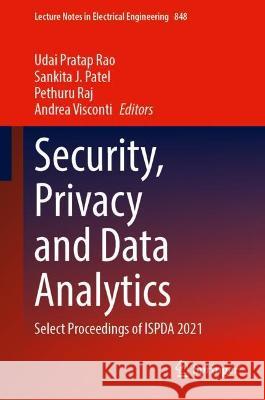Security, Privacy and Data Analytics: Select Proceedings of Ispda 2021 » książka
topmenu
Security, Privacy and Data Analytics: Select Proceedings of Ispda 2021
ISBN-13: 9789811690884 / Angielski / Twarda / 2022 / 328 str.
Security, Privacy and Data Analytics: Select Proceedings of Ispda 2021
ISBN-13: 9789811690884 / Angielski / Twarda / 2022 / 328 str.
cena 523,30
(netto: 498,38 VAT: 5%)
Najniższa cena z 30 dni: 501,19
(netto: 498,38 VAT: 5%)
Najniższa cena z 30 dni: 501,19
Termin realizacji zamówienia:
ok. 22 dni roboczych.
ok. 22 dni roboczych.
Darmowa dostawa!
Kategorie:
Kategorie BISAC:
Wydawca:
Springer
Język:
Angielski
ISBN-13:
9789811690884
Rok wydania:
2022
Ilość stron:
328
Waga:
0.63 kg
Wymiary:
23.39 x 15.6 x 1.91
Oprawa:
Twarda
Wolumenów:
01
Dodatkowe informacje:
Wydanie ilustrowane











